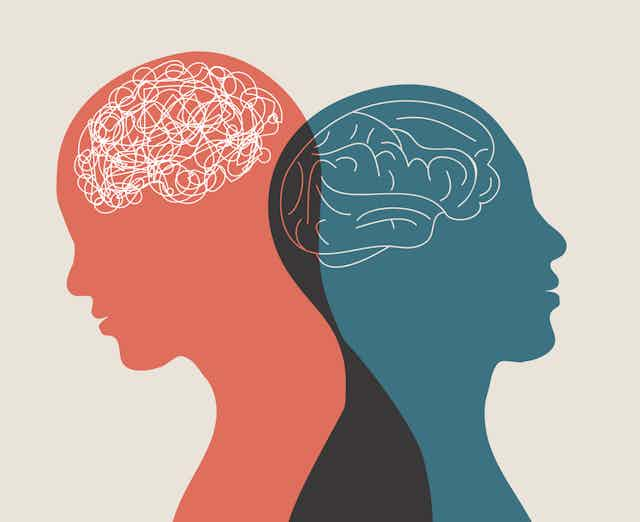Top Reasons to Consult the Best Psychologist in Delhi for Your Emotional Health and wellness
The Function of Psych Therapy in Handling Anxiousness and Depression
Psychotherapy has actually emerged as a keystone in the monitoring of stress and anxiety and depression, supplying customized interventions that vary from Cognitive-Behavioral Therapy (CBT) to mindfulness-based strategies. These strategies not just help people in determining and reorganizing adverse thought patterns yet also foster present-moment recognition, decreasing the tendency to ruminate.
Recognizing Stress And Anxiety and Anxiety
Understanding anxiety and depression calls for an extensive appearance at these widespread psychological health and wellness conditions, which usually coexist and significantly impact a person's everyday life. Alternatively, clinical depression shows up as a pervasive feeling of sadness, vacuum, or despondence, usually come with by a loss of rate of interest in formerly taken pleasure in tasks, modifications in appetite, and rest disturbances.
The conjunction of anxiety and clinical depression can make complex and exacerbate signs and symptoms diagnosis and therapy. Individuals experiencing both conditions might experience more extreme symptoms, greater problems in social and work-related functioning, and a much longer period of disease. This comorbidity demands a nuanced understanding and method to therapy.
Cognitive patterns like adverse thinking and maladaptive habits can continue these conditions. Comprehensive evaluation by mental health and wellness experts is crucial to recognize the visibility and degree of these problems, leading the method for customized therapeutic techniques.
Sorts Of Psychotherapy
Psychotherapy, also referred to as talk therapy, encompasses a variety of therapy methods made to alleviate symptoms of anxiousness and clinical depression by resolving the underlying mental and psychological concerns. Various kinds of psychiatric therapy are tailored to meet the special needs of people, giving a series of methods to mental health treatment.
One extensively used form is psychodynamic treatment, which concentrates on understanding and dealing with subconscious disputes stemming from very early life experiences. By checking out these deep-seated problems, individuals acquire understanding right into their current behavior and psychological state.
Interpersonal Therapy (IPT) is an additional effective modality that focuses on enhancing interpersonal partnerships and social working to decrease depressive symptoms. It commonly deals with concerns such as pain, function transitions, and social disputes.
Humanistic treatments, such as Client-Centered Therapy, stress personal development and self-actualization. Best Psychologist in Delhi. These methods develop a helpful environment where individuals can discover their feelings and establish a stronger feeling of self
Lastly, Dialectical Habits Treatment (DBT) integrates cognitive-behavioral strategies with mindfulness methods. Originally established for borderline individuality problem, DBT has been adjusted to treat stress and anxiety and clinical depression by teaching abilities in distress tolerance, emotional guideline, and social efficiency.
These diverse psychotherapeutic approaches supply several pathways to psychological health and wellness and health, satisfying specific preferences and therapeutic requirements.
Cognitive-Behavioral Treatment (CBT)
Amongst the numerous psychotherapeutic modalities, Cognitive-Behavioral Therapy (CBT) sticks out for its organized, ambitious approach in treating stress and anxiety and clinical depression. Created by Aaron T. Beck in the 1960s, CBT is based on the concept that maladaptive thinking patterns contribute her response substantially to psychological distress and behavior issues. By identifying and restructuring these negative thought patterns, CBT aims to relieve signs and symptoms and foster much healthier cognitive More about the author procedures.
The treatment includes a variety of strategies, consisting of cognitive restructuring, exposure therapy, and behavioral activation. Cognitive restructuring concentrates on challenging and modifying altered cognitions, while exposure treatment slowly accustoms patients to anxiety-provoking stimulations, lowering avoidance behaviors.
Empirical proof underscores the efficacy of CBT, with numerous research studies demonstrating its performance in minimizing symptoms of anxiousness and depression. This therapeutic method has been adapted for different populations and setups, showing functional and adaptable. Its organized nature, empirical assistance, and concentrate on skill procurement make CBT a foundation in the psychotherapeutic therapy of anxiety and clinical depression.
Mindfulness-Based Techniques
Mindfulness-Based Techniques have gathered significant interest recently as efficient interventions for stress and anxiety and depression. Rooted in old reflection practices, these techniques intend to cultivate an enhanced awareness of today moment, which can assist individuals disengage from the ruminative idea patterns usually related to anxiousness and depressive problems.

Similarly, Mindfulness-Based Cognitive Therapy (MBCT) integrates principles from Cognitive-Behavioral Treatment (CBT) with mindfulness techniques. MBCT is specifically reliable in avoiding relapse in individuals with recurring clinical depression. By acknowledging very early caution indications of depressive episodes, people trained in MBCT can use mindfulness practices to reduce the beginning of full-on episodes.
Advantages of Psychotherapy
Numerous studies have demonstrated the profound benefits of psychiatric therapy for people coming to grips with stress and anxiety and anxiety. One of the vital advantages is the improvement of emotional regulation. Psychiatric therapy furnishes patients with dealing methods to take care of upsetting feelings, thereby lowering symptoms of stress and anxiety and anxiety. Cognitive-behavioral treatment (CBT), for circumstances, assists people determine and challenge unfavorable idea patterns, cultivating a more favorable and balanced expectation.
Additionally, psychiatric therapy offers an organized setting for self-exploration and understanding. By reviewing their experiences and feelings with a qualified therapist, individuals can discover underlying problems adding to their psychological health battles. This self-awareness is a critical action toward long-lasting recuperation and durability.
An additional significant advantage is the improvement of social abilities. Anxiety and anxiety frequently stress partnerships, causing seclusion. Through healing interventions, clients learn efficient interaction and conflict-resolution skills, which can boost their communications and foster helpful connections.
In addition, psychiatric therapy uses a tailored technique to therapy. Specialists can adapt techniques to satisfy the distinct requirements of each client, ensuring a personalized care plan. This personalization improves the efficacy of therapy, advertising continual psychological wellness renovations. Inevitably, the benefits of psychotherapy extend beyond symptom relief, adding to total health and top quality of life.

Conclusion
Psychotherapy substantially adds to the monitoring of anxiousness and clinical depression by supplying reliable coping techniques and a protected environment for self-exploration. Techniques such anonymous as Cognitive-Behavioral Therapy (CBT) and mindfulness-based approaches are important in determining and restructuring negative thought patterns, while advertising present-moment understanding. These customized treatments not only minimize symptoms but additionally boost psychological law and social skills, thereby boosting overall well-being and lifestyle for people dealing with these mental health obstacles.
Psychiatric therapy has actually arised as a cornerstone in the management of anxiousness and anxiety, providing customized treatments that range from Cognitive-Behavioral Treatment (CBT) to mindfulness-based methods.Comprehending anxiety and clinical depression needs an extensive appearance at these common mental wellness conditions, which often exist side-by-side and considerably influence a person's daily life.Amongst the various psychotherapeutic methods, Cognitive-Behavioral Therapy (CBT) stands out for its organized, goal-oriented strategy in treating anxiousness and depression.Countless research studies have actually demonstrated the extensive benefits of psychotherapy for people grappling with stress and anxiety and clinical depression. Psychotherapy outfits patients with dealing approaches to handle distressing emotions, therefore decreasing signs of anxiousness and clinical depression.